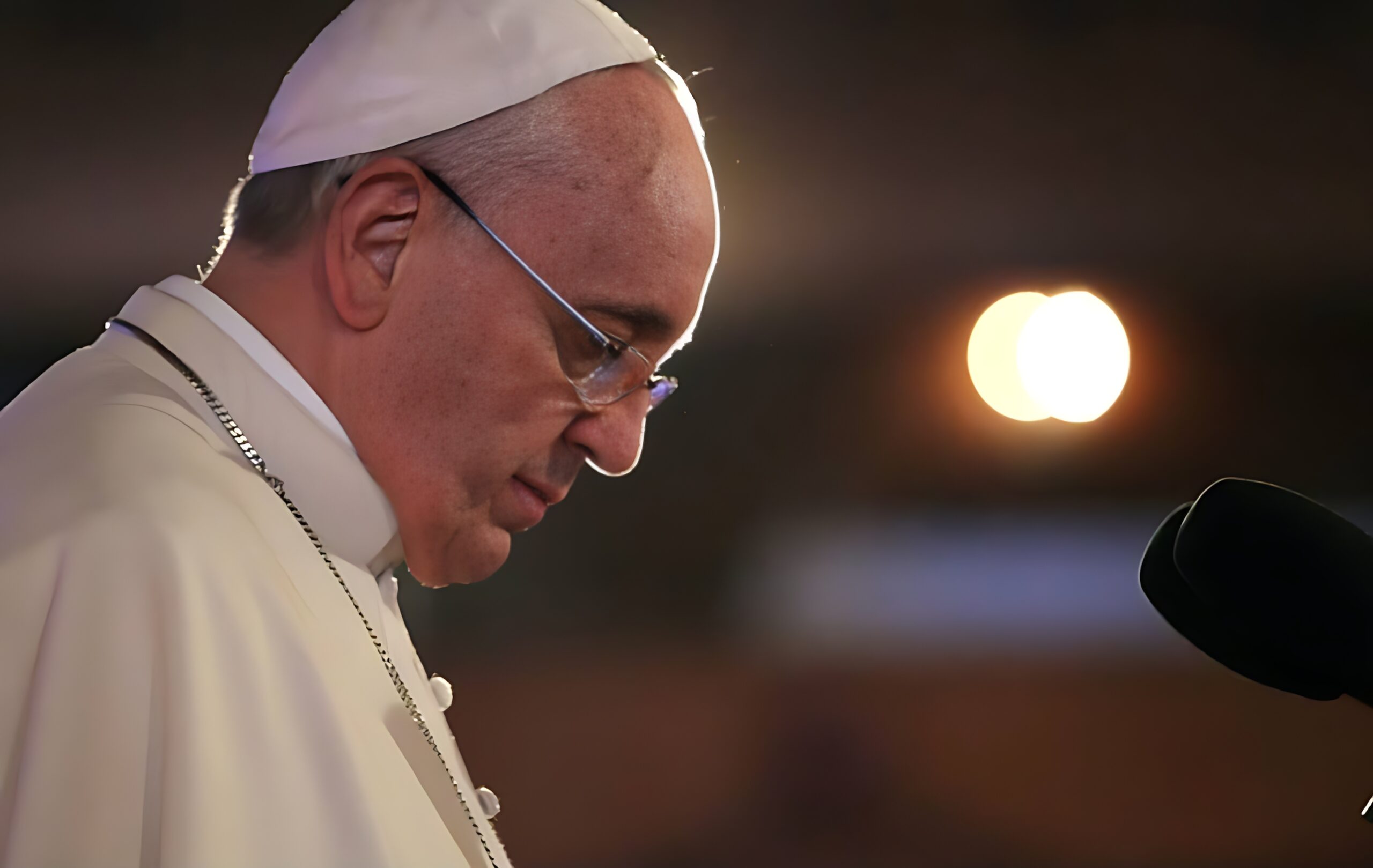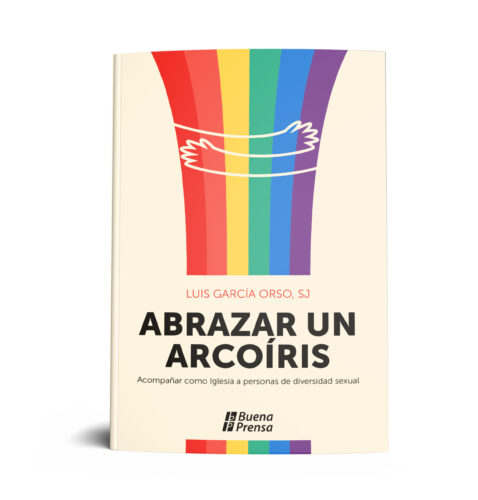What do you make of a pope who has embraced the LGBTQ Catholic community, but who reportedly used a gay slur while reiterating the church’s ban on admitting gay men to seminaries? Many LGBTQ Catholics, including myself, find themselves asking that question today, and satisfying answers seem in short supply.
On Monday, news broke in Italy, and was quickly picked up by U.S. outlets, that reported Pope Francis had told Italian bishops earlier this month at a closed-door meeting that they should continue to refrain from admitting gay men to seminaries, in order to “prevent the risk that the gay person who chooses the priesthood could later end up living a double-life, continuing to practice homosexuality.”
But it was the pope’s use of the Italian word frociaggine that raised eyebrows, as it is an offensive slang word used against gay people. Francis reportedly said, “there is too much frociaggine in seminaries.”
The remarks seem to be at odds with the pope’s welcoming gestures to the LGBTQ Catholic community—including to gay priests.
The Vatican issued a statement, posted by Vatican News on Tuesday, offering an apology from the pope.
“Pope Francis is aware of the recent articles regarding a closed-door conversation with the bishops of the CEI [Italian Bishops’ Conference]. As he has stated on many occasions, ‘There is room for everyone in the Church, for everyone! No one is useless; no one is superfluous; there is room for everyone. Just as we are, everyone,’” Vatican spokesman Matteo Bruni said. “The Pope never intended to offend or express himself in homophobic terms, and he apologizes to those who felt offended by the use of a term, as reported by others.”
(Following the release of that statement, Gerard O’Connell, the Vatican correspondent for America, noted that the word “reported” may have been mistranslated, and that the apology was meant to convey that another bishop used the word first during a lengthy question-and-answer session, which Pope Francis then repeated.)
Even though Francis has repeatedly upheld the church’s official ban on gay men entering seminaries, the remarks seem to be at odds with the pope’s welcoming gestures to the LGBTQ Catholic community—including to gay priests. When Francis said “Who am I to judge?” in response to a question about gay priests in 2013, there was a collective sigh of relief from many gay priests, who finally felt a sense of belonging.
As someone who has benefitted from the pastoral guidance of more than a few of them, I also felt encouraged that the men I have known to be wise, patient and effective ministers didn’t feel like they had to hide their true selves.
There have always been holy, faithful (and celibate) gay men in the priesthood.
So what happened? At this point, in part because of the Vatican’s sparse comments about the meeting with the Italian bishops, there are many more questions than answers.
Are LGBTQ Catholics and their families right in questioning the sincerity of Pope Francis’s calls for a more welcoming church for LGBTQ people? Were these latest comments the classic definition of a gaffe, an instance of a public figure mistakenly saying aloud what he or she really believes? Or are LGBTQ Catholics meant to parse the statement to death, seeking out the least offensive meanings, such as finding in his words an implicit condemnation not of gay priests but of priests leading double lives?
Did Francis, in his late 80s and holding traditional views on gender and sexuality more broadly, mean what he said, but thinking the meeting was private, didn’t consider how his words would be more broadly received? Maybe the pope failed to grasp the word’s connotation. (Veteran Vatican commentator John L. Allen throws ice on the idea that Francis didn’t know the word he either used or repeated is offensive, and instead suggests in an essay at Crux that Francis had a very specific seminary culture in mind when he spoke.)
Without further clarification from the Vatican, it’s impossible to know what to make of the pope’s latest comments. Still, I have heard from a number of gay priests and seminarians over the last couple of days, each of whom has expressed renewed frustration and anger about this latest episode. Several told me that they weren’t upset necessarily about the reported slur but instead about the inconsistencies of the Francis era when it comes to LGBTQ people. For these men in particular, who are either studying to be priests or who are already priests, there is a sense that they are somehow defective and unable to engage in authentic ministry.
There have always been holy, faithful (and celibate) gay men in the priesthood. One explanation for the decline in priestly vocations over the past few decades is that as gay men are more able to lead “open” lives, and even marry, fewer of them choose the priesthood. Sometimes church leaders say that they want to ban gay men from entering the seminary because they may end up leading double lives, which seems to be what Francis believes. Some priests, however, point out that such a blanket ban ends up doing more harm than good, effectively creating a culture of secrecy around sexuality that can be used for nefarious purposes.
Some LGBTQ Catholics expressed frustration with the Vatican’s apology, noting that the statement did not seem to express regret for the pope’s reported use of the slur.
Some LGBTQ Catholics expressed frustration with the Vatican’s apology, noting that the statement did not seem to express regret for the pope’s reported use of the slur but instead sought to apologize to those who were “offended” by it. Others focused on the pope’s apparently dim view of gay priests. DignityUSA, a group for LGBTQ Catholics, said that the pope’s comment reveals “the depth of anti-gay bias and institutional discrimination that still exist in our church” while New Ways Ministry called on Francis “to provide a clearer statement on his views about gay priests, so many of whom faithfully serve the people of God each day.”
LGBTQ Catholics, who are rightly disappointed, hurt and even angry today, are resilient enough to know better than to put the entirety of their faith in any one church leader. I’ve often said that as a gay Catholic, I know what I’ve signed up for.
The institutional church teaches that homosexual acts are a sin, homophobia (and perhaps more so now, transphobia) is not uncommon among its leaders and I still feel a certain sense of dread when I worship at an unfamiliar church, fearful of what might be preached. (Though I have been fortunate that in attending Masses throughout the United States, I have almost never heard an utterance of homophobia preached by a priest during Mass.)
Despite all these challenges, I’ve chosen to remain Catholic and devote my professional life to chronicling stories about the church, in part because of the sacraments and in part because I’ve seen firsthand how the institution serves as the conduit between the sacred and the mundane for so many LGBTQ people.
Every so often, I have the opportunity to meet LGBTQ Catholics who are as boldly unapologetic about their sexual orientation as they are fervent about their faith. During a visit to Syracuse, N.Y., a few years ago, I met a gay Catholic couple who had turned their home into a Catholic Worker house, first to serve people with AIDS and today, for use as a community space for folks down on their luck. This witness of Nick Orth and Michael DeSalvo continues to challenge me to be a better Christian.
Every so often, I have the opportunity to meet LGBTQ Catholics who are as boldly unapologetic about their sexual orientation as they are fervent about their faith.
Pope Francis has made many kind gestures to the LGBTQ community during the past 10 years, and like many other LGBTQ Catholics, I have found them to be moving and hopeful. But none of them has come close, in terms of exhorting me to persevere in my faith, to the example of people like Michael and Nick, who see in Jesus’ example not a call to ostracize and discriminate but to embrace and love.
Last month, I wrote about the sense of whiplash many LGBTQ Catholics felt after the Vatican released a document condemning “gender ideology,” which took particular aim at medical interventions sometimes sought by people living with gender dysmorphia.
Reports that Francis used an offensive slur present another moment of whiplash, especially because it rubs up against his well-worn image as someone trying to make the church more welcoming to the LGBTQ community.
No ally is perfect, and sometimes even someone with the best of intentions will reach a limit in terms of how far they are able to go. Perhaps that limit has been reached.
Still, Pope Francis has given space for others to engage in the kinds of dialogue, scholarly research and pastoral practice that will be necessary for the church to truly become what the pope dreams of: a place that is for todos, todos, todos—everyone, everyone, everyone.
What that future work entails is unclear. But unless the church engages in the kinds of deep theological reflection needed to understand what it means to welcome and integrate LGBTQ people into the life of the church, in meaningful and concrete ways, the LGBTQ community will continue to be left grasping onto gestures. Gestures alone, no matter how well meaning, are not enough.
A heartening number of Catholics seem ready to confront the centuries of prejudice against LGBTQ people.
A heartening number of Catholics seem ready to confront the centuries of prejudice against LGBTQ people and to engage in the hard work that true reconciliation entails. Francis seems like he is on board with that project, however imperfectly and conditionally his support sometimes comes across.
But the apparent ease with which even Pope Francis resorted to using an offensive term and his seeming willingness to equate sexual orientation with an inability to live out one’s vows faithfully show much more work remains.




